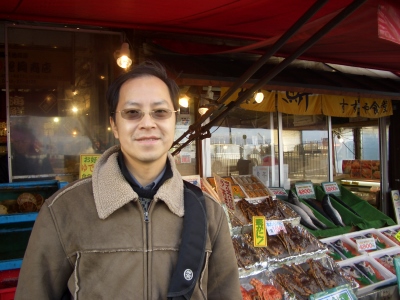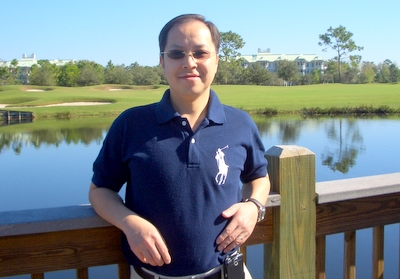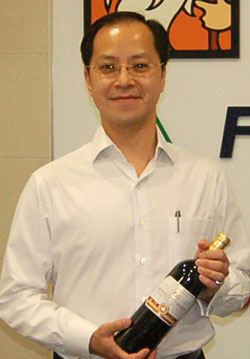
RECENTLY, PRIOR to a briefing Man Wah Holdings held on its latest financial performance, Benjamin Chan, 42, asked to be allowed to attend. He was not the target audience – that is, analysts and fund managers – but he was a very interested individual as he held a substantial stake of the stock.
In fact, Man Wah, a China-based sofa manufacturer, is the biggest holding in his portfolio. Having gained entry to the briefing at Republic Plaza, Benjamin, an actuary with an international reinsurer, made the most of it by asking question after question – instead of being contented with the 65 per cent jump in net profit which Man Wah had just unveiled for the first quarter of its new financial year ended June 30.
Even after the question-and-answer session ended and attendees started to leave, he was not done yet. Benjamin lingered behind with a few equally interested analysts and fund managers to speak with Man Wah’s finance director, Francis Lee – just so he could understand the business a little better.
It was at that event that I first met Benjamin. The one thing about him which people sooner or later sense is that he is very good with numbers, which in turn suggests that he has some key tools to analyse businesses and pick good stocks.
He says he has been good with numbers since his student days in Hong Kong, where he was born. But his overall academic results were just average and he didn’t secure a place in Hong Kong universities. So, despite not coming from a well-to-do family, he was able to head to New Zealand where, as luck would have it, foreign students paid the same fees as locals of about NZD 1,000 a year.
There, he “learnt to focus on studies and excelled in them. The discipline I developed during university years continue to help me in my actuarial career, which has one of the toughest professional exams in the world.”
Benjamin, a Singaporean citizen for the last 15 years, is married with a son, Bryan, 11, and daughter, Felicia, 13. His wife, Fiona, a Singaporean too, is a senior bank executive. The couple met in New Zealand during their undergraduate days, and now live in a condominium in Upper Bukit Timah.
Q: In this bear market, is your investment portfolio holding up well?
A: It’s down 50% from its peak in Oct 2007, though I still have a high single digit annual return since 2003 when I first moved to the value-investing approach. It is one thing to read about Mr Market (in Intelligent Investor and frequently quoted by Warren Buffett), but it is another thing to truly experience it like what we all are doing now. The emotional roller coaster can be overwhelming in a bear market.
Q: What have you been doing of late in the market? Buying or selling, or just sitting tight?
A: Sitting tight. I am paying particular attention to various companies’ business moats during this difficult time. I am talking about the operating environment the companies are in such as rising costs, the strengthening of yuan hitting export sales, and cut in export tax rebate. It is crucial to differentiate those who can maintain margins in this environment. If they can maintain their margins, there must be a moat around the company. This analysis will help to re-arrange my portfolio.
Q: Dangerous question: When do you think the Singapore market will bottom and start to recover?
A: The Singapore market is influenced by foreign fund movement. So I think it will recover when they come back to the market. I just don’t know when. No one can consistently predict the market. If I had been able to forsee the plunge in share prices, I would have sold all my holdings in Oct 2007!

Q: What are your five key holdings and what percentage do they collectively represent in your portfolio?
A: They are Man Wah Holdings, Hongwei Technologies, Celestial Nutrifoods, Full Apex and Fung Choi Media. They represent 75% of my stock portfolio. You can tell that I am a focused investor!
Q: You are evidently keen on S-chips? Why?
A: It is not S-chips I am after but small caps. It just happens S-chips offer better value in Singapore – that is, they have low price-earnings ratios and high returns on equity. I am looking for multi-baggers and they are typically small caps. Also, over the long run it has been demonstrated that small caps outperform large caps and value investing outperforms other investment styles. As a result, a combination small cap and value should outperform other investment styles.
Having said that, there is a PE discount for China companies listed in SGX vis-a-vis their counterparts in China and Hong Kong. One of the reasons is that S-chips are on average much smaller in size than those in China and HK. This difference of valuation also makes S-chips attractive to me.
Q: When did you start investing and what led you to it?
A: About 10 years ago, my wife and I finished paying off the mortgage on our home. We came to recognise that with a long-term timeframe, investing in stocks is a good way to build up a nest egg. I had invested in unit trusts for a couple of years but eventually I realised that fund managers and unit holders are usually not aligned since most funds are structured with a fixed regular asset charge independent of fund performance.
One can argue that the better the fund performance, the higher the asset value, hence the higher the charge collected, but this is only a secondary effect. The point here is even though unit holders suffer losses, fund managers still take a cut from the assets under management. In addition, unit trusts usually charge large fees and invest in large caps which prevent them from outperforming.
Q: How different is your investment approach now compared with when you started putting money in stocks 10 years ago?
A: When I started, I wasn’t investing but simply speculating, hoping for a quick return. A 5-20% gain for each trade would be satisfying enough, though I wasn’t trading frequently and had never used margin financing for Singapore stocks.
I did use margin financing during the dot-com period via a US Internet trading account but the amount was relatively small. I eventually lost 95% of my capital and learnt a good lesson. Ironically, I didn’t look at fundamentals at all then despite my actuarial training.
I don’t use margin in investing, and have never sold short in Singapore. Debt and patience cannot mix.
Q: Was there any unforgettable experience arising from doing hard research and investing longer term?
A: My first move to value investing was with the stock of Jardine C&C. I accumulated it from 2002 to 2004. This was the first stock whose fundamentals I studied closely and did a lot of research on the Web. During this period, the stock price did not move much even though the fundamentals were improving.
I learnt that Indonesia car sales were increasing every month by checking Yahoo news on Astra every night, and as Astra has half the market, Jardine C&C’s profit result was bound to be good. So I kept adding shares to my holding when I had spare cash. My experience of holding C&C led me to change my investment style to holding a stock beyond a 5-20% gain. In 2005, I sold all when the Indonesian car market started to slow down. By then, my gain was more than 130%! I was very happy as it was a big gain to me in dollar terms at that time.

Q: Sorry to interrupt, but can you give an idea of the gain?
A: Short of $400,000 – well, $386,000 to be exact. I could fully appreciate the inefficiency of the market in the sense that information of C&C fundamentals was there and yet this information was not fully recognised for a long time. The key lesson I learnt was that having the knowledge and information on a stock gives me an advantage in the marketplace.
During this period, I started to read investment books especially classic like Intelligent Investor, Common Stocks and Uncommon Profits and Essays of Warren Buffett. I began to understand that buying stock is like buying a portion of the business.
Q: Since selling Jardine C&C, was there any stock that you made big gains on?
A: There was MMI, which returned 141% and Sembawang Kimtrans, a 131% gain. My top 3 holdings now are Man Wah, Hongwei, and Celestial Nutrifoods - they are the multi-baggers in waiting, I hope. My gain on Celestial Nutrifoods did reach 300% - from 50 cents to $2 - at its peak in 2006 due mainly to PE expansion but I reckoned the price was still below the stock’s intrinsic value then so I didn’t sell. The business has been improving but the price-earnings ratio simply contracted as the market fell.
Q: How, if at all, does your training and work experience as an actuary help in your stock picking?
A: Probabilistic thinking, discount cash flow and long-term thinking are the core components of actuarial science. These are the tools most appropriate for investing. Like Warren Buffett, I don't do exact calculations of intrinsic value using discount cash flow, but roughly I can see a PE of 4-8x is attractive. The very high analytic skills and a sharp and quick mind every actuary has also help in research and analysing companies and business.
Q: Do you invest your wife’s savings as well? Given the financial nature of her work, does she have any investing skills or ideas to chip in?
A: Our savings are pooled. Some are under her name and some are under mine. I do the research and come up with recommendations – but all decisions are agreed jointly.

Q: Earlier you talked about reading investment books. What’s a new solid book that you can recommend?
A: I have read almost all the classic investing books and I think most of the good stuff on investing has already been written. A recent book by Pat Dorsey (The Little Book that Builds Wealth) is a very good one. It focuses on business moats. I think they are the key to investment success and I have to admit that some of my stocks don't have many moats and I plan to let go some when the market turns.
Q: Let’s talk a bit about lifestyle: I guess you would be what is termed a high net-worth investor. Is yours a glittering lifestyle?
A: My lifestyle has not changed much in the last five years. I feel that how much money you have need not affect your lifestyle. My family shop and eat at the same places as before, and, predictable as it sounds, do the same things most Singaporeans do – that is, shop, watch TV and movies, for example. The only big-ticket item is travel, and we usually try to go on one long and one short trip a year.
The only difference is that in the past few years, I have developed a habit of spending one to two hours a night to go through a routine, which is:
- Check company announcements on the SGX website pertaining to my stocks.
- Check announcements for stocks on my watch list.
- Visit news and research websites to find out industry trends for some raw materials, etc.
- Visit some investment blogs and websites, both local and overseas.
- Occasionally do Google searches for information on my stocks.
This article first appeared in Pulses magazine, and is republished here with permission.
Recent story: BENJAMIN CHAN, forumer of the month


